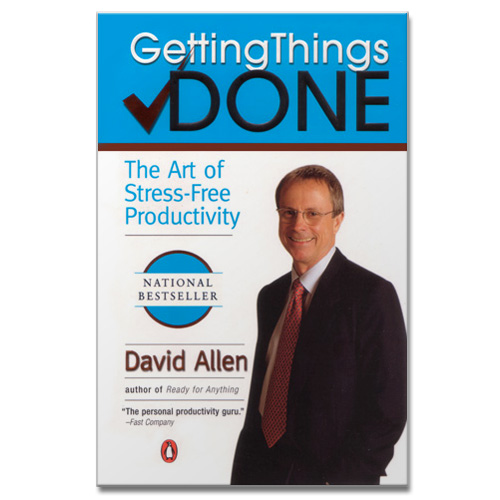 When I first read David Allen‘s Getting Things Done, I was about to abandon the structure of my office job for the self-directed world of stay-at-home work and motherhood. I have Getting Things Done (GTD) to thank for every household and personal management success I’ve had since.
When I first read David Allen‘s Getting Things Done, I was about to abandon the structure of my office job for the self-directed world of stay-at-home work and motherhood. I have Getting Things Done (GTD) to thank for every household and personal management success I’ve had since.
Regardless of the level of external structure in your work and life, ADHD adults need an intentional, airtight system to organize time and tasks. GTD is a great place to start. Allen’s book offers a detailed framework for setting up your personalized organizational system — one that may feel like magic.
Recently, my husband (who also has ADHD) and I engaged in a heated discussion about time, and his apparent lack of it. I kept pushing GTD as a solution until he demanded, “yeah, but does it actually give you more time? Whenever you talk about it, it’s like time magically appears out of nowhere so you can get your stuff done.”
Silence.
Then, my response: “well, yes, that’s pretty much how I felt when I first read the book. I wasn’t working harder, but my projects just started getting done.”
Allen challenges readers to gather every loose end, from the mundane to the enormous, and put it all into a central, trusted system. ADHD adults will benefit especially from the continued assertion that your brain is the worst place to store just about anything.
That kind of common-sense approach pervades the book and the GTD system. Allen knows how the brain works, and he knows how to work with — rather than against — our innate strengths and weaknesses. While ADHD isn’t mentioned anywhere in the text, Getting Things Done should be required reading for all of us.
Potential ADHD pitfalls
Of course, GTD is not a cure-all. ADHD adults in particular will need to stay vigilant so as not to get off track.
For example, processing your inbox without actually doing all the tasks immediately may be exhausting. It’ll be tempting to “catch up” as you empty your inbox, especially if you find something urgent and long-forgotten. However, it’s best to keep Allen’s two-minute rule in mind: if you can’t finish it in two minutes, put it in your task management system and keep moving. If these tasks keep distracting you from reaching the bottom of your inbox, you’ll stop trusting the inbox as a place to put important to-dos.
Given that this initial inbox dump may create a drain on your stamina and willpower, I’d caution against Allen’s advice to work long days. If you do choose to go this route, I recommend recruiting a friend to help you stay on course.
My biggest daily struggle with GTD is remembering to create projects in my task management system. In our haste to get tasks onto our list and move on to the next thing that catches our eye, it can be tempting for ADHD’ers to add actions like “get new tires” to our to-do lists. Though I endure significant resistance from my brain on a regular basis, forcing myself to think through the tasks required to complete a small project is a major key to my success with GTD.
Common sense where we need it most
In what feels almost cliche for ADHD adults, Allen insists that “trying to approach any situation from a perspective that’s not the natural way your mind operates will be difficult.”
For those of us contending with ADHD, that’s an understatement.
However, there’s wisdom for everyone here: feeling overwhelmed and out of control is inevitable. Digging your way out to a play of calm and productivity is not. You need to use common sense. Allen gives us a step-by-step guide to implementing a common-sense task management system for every level of our lives. If you haven’t read Getting Things Done yet, do it this week. You won’t regret it.
Hey there! Are you enjoying The ADHD Homestead?
Here's the thing: I don't like ads. I don't want to sell your attention to an advertising service run by the world's biggest data mining company. I also value my integrity and my readers' trust above all, which means I accept very few sponsorships/partnerships.
So I'm asking for your support directly. For the cost of one cup of coffee, you can help keep this site unbiased and ad-free.
Below you will find two buttons. The first lets you join our crew of Patreon pals and pledge monthly support for my work. Patrons also have access to my Audioblogs podcast. The second takes you to a simple donation page to pledge one-time or recurring support for The ADHD Homestead, no frills, no strings. Do whichever feels best for you!

